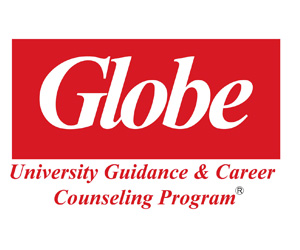Latest News
-
 10 July 2024The University of Balamand celebrates the graduation of the academic year 2023-202410 July 2024The University of Balamand held its Commencement Ceremony on Saturday, July 6, at the university’s main campus in Koura, marking…10 July 2024
10 July 2024The University of Balamand celebrates the graduation of the academic year 2023-202410 July 2024The University of Balamand held its Commencement Ceremony on Saturday, July 6, at the university’s main campus in Koura, marking…10 July 2024
-
 25 February 2024Exploring Graphic Design as a Major and Career Choice25 February 202425 February 2024
25 February 2024Exploring Graphic Design as a Major and Career Choice25 February 202425 February 2024 -
 09 October 2023الفائز بنوبل الكيمياء رسب في امتحانه الجامعيّ الأول: "النكسات جزء من الحياة"09 October 202309 October 2023
09 October 2023الفائز بنوبل الكيمياء رسب في امتحانه الجامعيّ الأول: "النكسات جزء من الحياة"09 October 202309 October 2023
-
 Pursuing a Master's Degree in MicrobiologyBy Gaby Yazigi Editor-in-Chief Globe University Guidance founder and GM Pursuing a Master's Degree in Microbiology: A Pathway to Exciting Career…
Pursuing a Master's Degree in MicrobiologyBy Gaby Yazigi Editor-in-Chief Globe University Guidance founder and GM Pursuing a Master's Degree in Microbiology: A Pathway to Exciting Career… -
 The Ideal UniversityBy Gaby Yazigi Editor-in-Chief Globe University Guidance founder and GM Finding the Ideal University for Pursuing Higher Education: A Comprehensive Guide…
The Ideal UniversityBy Gaby Yazigi Editor-in-Chief Globe University Guidance founder and GM Finding the Ideal University for Pursuing Higher Education: A Comprehensive Guide… -
 Actuaries vs. Financial AnalystsBy Gaby Yazigi Editor-in-Chief Globe University Guidance founder and GM Actuaries vs. Financial Analysts: Understanding the Key Differences Introduction In the…
Actuaries vs. Financial AnalystsBy Gaby Yazigi Editor-in-Chief Globe University Guidance founder and GM Actuaries vs. Financial Analysts: Understanding the Key Differences Introduction In the…
-
 American University of Sharjah An Ideal Choice for Students in UAEBy Gaby Yazigi Editor-in-Chief Globe University Guidance founder and GM Choosing the right university is crucial for students, as it sets the foundation for their academic and professional careers. The American University of Sharjah (AUS) stands…On The Spot
American University of Sharjah An Ideal Choice for Students in UAEBy Gaby Yazigi Editor-in-Chief Globe University Guidance founder and GM Choosing the right university is crucial for students, as it sets the foundation for their academic and professional careers. The American University of Sharjah (AUS) stands…On The Spot
-
Home Articles Read more...
 Actuaries vs. Financial AnalystsBy Gaby Yazigi Editor-in-Chief Globe University Guidance founder and GM Actuaries vs. Financial Analysts: Understanding the Key Differences Introduction In the…
Actuaries vs. Financial AnalystsBy Gaby Yazigi Editor-in-Chief Globe University Guidance founder and GM Actuaries vs. Financial Analysts: Understanding the Key Differences Introduction In the… -
Home Articles
 The Ideal UniversityBy Gaby Yazigi Editor-in-Chief Globe University Guidance founder and GM Finding the Ideal University for Pursuing Higher Education: A Comprehensive Guide…
The Ideal UniversityBy Gaby Yazigi Editor-in-Chief Globe University Guidance founder and GM Finding the Ideal University for Pursuing Higher Education: A Comprehensive Guide… -
Home Articles Read more...
 Pursuing a Master's Degree in MicrobiologyBy Gaby Yazigi Editor-in-Chief Globe University Guidance founder and GM Pursuing a Master's Degree in Microbiology: A Pathway to Exciting Career…
Pursuing a Master's Degree in MicrobiologyBy Gaby Yazigi Editor-in-Chief Globe University Guidance founder and GM Pursuing a Master's Degree in Microbiology: A Pathway to Exciting Career…
-
 15 February 2024Choose a University Major Compatible with your Talent15 February 2024By Gaby Yazigi Editor-in-Chief Globe University Guidance founder and GM Introduction The decision of choosing a university major is a pivotal moment in the academic and…15 February 2024Guidance
15 February 2024Choose a University Major Compatible with your Talent15 February 2024By Gaby Yazigi Editor-in-Chief Globe University Guidance founder and GM Introduction The decision of choosing a university major is a pivotal moment in the academic and…15 February 2024Guidance
-
 15 February 2024Choose a University Major Compatible with your Talent15 February 2024By Gaby Yazigi Editor-in-Chief Globe University Guidance founder and GM Introduction The decision of choosing a university major is a pivotal moment in the academic and professional development of high school…15 February 2024Guidance
15 February 2024Choose a University Major Compatible with your Talent15 February 2024By Gaby Yazigi Editor-in-Chief Globe University Guidance founder and GM Introduction The decision of choosing a university major is a pivotal moment in the academic and professional development of high school…15 February 2024Guidance -
 02 October 2023Meet the Nurses! “ I’m a nurse and I’m proud ” 102 October 2023Name: Pamela ZeinounMajor: NursingYear: SeniorUniversity: Univesity of Balamand I am a second year nursing student at the University of Balamand - Main Campus. I have chosen to become a nurse since I consider Nursing…02 October 2023Guidance
02 October 2023Meet the Nurses! “ I’m a nurse and I’m proud ” 102 October 2023Name: Pamela ZeinounMajor: NursingYear: SeniorUniversity: Univesity of Balamand I am a second year nursing student at the University of Balamand - Main Campus. I have chosen to become a nurse since I consider Nursing…02 October 2023Guidance -
 19 January 2015Globe Magazine a posé 10 questions à une étudiante en médecine19 January 2015Stéphanie Yaacoub de l’Université de Balamand 6ème année de médecine (MED3) Aux yeux de la société les medecins touchent beaucoup d’argent; bien entendu ceci n’est pas pour déplaire aux étudiants de Medecine,…19 January 2015Guidance
19 January 2015Globe Magazine a posé 10 questions à une étudiante en médecine19 January 2015Stéphanie Yaacoub de l’Université de Balamand 6ème année de médecine (MED3) Aux yeux de la société les medecins touchent beaucoup d’argent; bien entendu ceci n’est pas pour déplaire aux étudiants de Medecine,…19 January 2015Guidance
-
 10 October 2023Holy Spirit University of Kaslik (USEK)10 October 2023USEK The diplomas delivered by USEK are officially authenticated by the Lebanese state. Curricula are developed in such a way as to prepare future graduates…10 October 2023Majors & Programs In Lebanon
10 October 2023Holy Spirit University of Kaslik (USEK)10 October 2023USEK The diplomas delivered by USEK are officially authenticated by the Lebanese state. Curricula are developed in such a way as to prepare future graduates…10 October 2023Majors & Programs In Lebanon
-
 09 October 2023Lebanese American University (LAU)09 October 2023LAU The Lebanese American University is a leading, nonsectarian, private higher education institution in Lebanon. It operates under a charter from the Board of Regents of the University of the…09 October 2023
09 October 2023Lebanese American University (LAU)09 October 2023LAU The Lebanese American University is a leading, nonsectarian, private higher education institution in Lebanon. It operates under a charter from the Board of Regents of the University of the…09 October 2023 -
 08 October 2023Balamand University (UOB)08 October 2023UOB Founded in 1988, The University of Balamand has grown dramatically over the years and today, with ten faculties and one institute, has around 5700 students distributed over four campuses. The University offers undergraduate…08 October 2023
08 October 2023Balamand University (UOB)08 October 2023UOB Founded in 1988, The University of Balamand has grown dramatically over the years and today, with ten faculties and one institute, has around 5700 students distributed over four campuses. The University offers undergraduate…08 October 2023 -
 07 October 2023Notre Dame University (NDU)07 October 2023NDU actively searches for students who can enrich the university’s already multi-cultural and multi-talented student body. Students with a wide view of the world around them, prone to discovering new ways…07 October 2023
07 October 2023Notre Dame University (NDU)07 October 2023NDU actively searches for students who can enrich the university’s already multi-cultural and multi-talented student body. Students with a wide view of the world around them, prone to discovering new ways…07 October 2023
Globe University Guidance
-
 10 October 2023Higher Education In Lebanon10 October 2023Lebanon's higher education is the oldest in the region and dates back to 1866 when the American University of Beirut (AUB) was founded under the name of the Syrian Evangelical College, followed by the Universityof Saint Joseph (USJ) in 1875,then…10 October 2023Study in Lebanon
10 October 2023Higher Education In Lebanon10 October 2023Lebanon's higher education is the oldest in the region and dates back to 1866 when the American University of Beirut (AUB) was founded under the name of the Syrian Evangelical College, followed by the Universityof Saint Joseph (USJ) in 1875,then…10 October 2023Study in Lebanon
-
 09 October 2023List of Universities In Lebanon09 October 2023List of Universities In Lebanon Lebanese education system could by classified into two major systems. Lebanese education system could by…09 October 2023
09 October 2023List of Universities In Lebanon09 October 2023List of Universities In Lebanon Lebanese education system could by classified into two major systems. Lebanese education system could by…09 October 2023 -
 06 October 2023Study In Lebanon06 October 2023As ancient as the cedar tree, as mighty as the oak and as persevering as the mountain wall; this is…06 October 2023
06 October 2023Study In Lebanon06 October 2023As ancient as the cedar tree, as mighty as the oak and as persevering as the mountain wall; this is…06 October 2023 -
 05 October 2023CULTURE05 October 2023An interesting archaeological relic found throughout Lebanon is the hundreds of well-preserved mosaics from the Roman and Byzantine eras. Countless…05 October 2023
05 October 2023CULTURE05 October 2023An interesting archaeological relic found throughout Lebanon is the hundreds of well-preserved mosaics from the Roman and Byzantine eras. Countless…05 October 2023
-
 13 September 2023Top Universities in The USA13 September 2023Top Universities in The USA Browse the College Rankings list below or search for a top-ranked on-campus or online college program that specializes in your area of interest.Top-ranked national universities, such as Princeton and MIT, offer a wide variety of majors…13 September 2023Study in the USA, Canada & Aus
13 September 2023Top Universities in The USA13 September 2023Top Universities in The USA Browse the College Rankings list below or search for a top-ranked on-campus or online college program that specializes in your area of interest.Top-ranked national universities, such as Princeton and MIT, offer a wide variety of majors…13 September 2023Study in the USA, Canada & Aus
-
 10 September 2023Top 10 Scholarships in Canada for International Students10 September 2023There are a limited number of Canada Scholarships compared to the large number of USA scholarships, UK scholarships, or Australia scholarships that are available for foreign students. To help you in…10 September 2023
10 September 2023Top 10 Scholarships in Canada for International Students10 September 2023There are a limited number of Canada Scholarships compared to the large number of USA scholarships, UK scholarships, or Australia scholarships that are available for foreign students. To help you in…10 September 2023 -
 01 September 2023List of Universities In USA01 September 2023YOUR STEPS TO STUDY IN THE USA: Whether you plan to pursue a short-term or full degree program in the United States, this is what you need in 'Your Four…01 September 2023
01 September 2023List of Universities In USA01 September 2023YOUR STEPS TO STUDY IN THE USA: Whether you plan to pursue a short-term or full degree program in the United States, this is what you need in 'Your Four…01 September 2023 -
 05 August 2023List of Australian Universities05 August 2023Australia is home to 43 universities with at least one university main campus based in each state or territory.The Australian Universities map allows you to see where each university’s main…05 August 2023
05 August 2023List of Australian Universities05 August 2023Australia is home to 43 universities with at least one university main campus based in each state or territory.The Australian Universities map allows you to see where each university’s main…05 August 2023
-
 05 September 2023Study In The UAE05 September 2023In the whole of Middle East, UAE is seen as an Educational Hub for students to come and pursue higher…05 September 2023study in uae, turkey & russia
05 September 2023Study In The UAE05 September 2023In the whole of Middle East, UAE is seen as an Educational Hub for students to come and pursue higher…05 September 2023study in uae, turkey & russia
-
 04 September 2023Top 10 Universities in Russia04 September 20231. Lomonosov Moscow State University The largest and oldest of all universities in Russia, established in 1755, Lomonosov Moscow State University has a current student enrollment of over 40,000 students – the…04 September 2023
04 September 2023Top 10 Universities in Russia04 September 20231. Lomonosov Moscow State University The largest and oldest of all universities in Russia, established in 1755, Lomonosov Moscow State University has a current student enrollment of over 40,000 students – the…04 September 2023 -
 02 September 2023Universities in Dubai02 September 2023In the whole of Middle East, Dubai is seen as an Educational Hub for students to come and pursue higher education. The following Universities provide various courses in Engineering, Management,…02 September 2023
02 September 2023Universities in Dubai02 September 2023In the whole of Middle East, Dubai is seen as an Educational Hub for students to come and pursue higher education. The following Universities provide various courses in Engineering, Management,…02 September 2023
-
 10 October 2023Top Universities In Germany10 October 2023Top 10 German Universities to study Medicine,Pharmacy,Electrical Engineering,Industrial Engineering,Mechanical Engineering,Material Engineering,Computer Sciences,Architecture,Language and Literature. Heidelberg…10 October 2023Study In Europe
10 October 2023Top Universities In Germany10 October 2023Top 10 German Universities to study Medicine,Pharmacy,Electrical Engineering,Industrial Engineering,Mechanical Engineering,Material Engineering,Computer Sciences,Architecture,Language and Literature. Heidelberg…10 October 2023Study In Europe
-
 09 October 2023Study In Germany09 October 2023Germany is one of the most attractive locations for international students worldwide. There are many…09 October 2023
09 October 2023Study In Germany09 October 2023Germany is one of the most attractive locations for international students worldwide. There are many…09 October 2023 -
 08 October 2023French universities08 October 2023Individuals choose France for their educational needs for a number of very good reasons. Because…08 October 2023
08 October 2023French universities08 October 2023Individuals choose France for their educational needs for a number of very good reasons. Because…08 October 2023 -
 01 October 2023Best Universities in France01 October 2023Top universities in France:Discover top universities in France and find your best study option in…01 October 2023
01 October 2023Best Universities in France01 October 2023Top universities in France:Discover top universities in France and find your best study option in…01 October 2023
What is a Major? What is a Minor?
- Details
- Hits: 1507

Factors that should be part of your decision
Decision
Deciding on a major is a big step, so you may be relieved when I tell you that you’re not signing your life away when you decide. Most majors allow some flexibility to tailor your classes to your particular interests. And if the major doesn’t work out for you, you can switch majors at a later time. Let’s begin the process of decision making by looking at what some of your options are.
What is a Major?
A University major is an organized program of study with some specific requirements that you must complete. Usually the program of study focuses on a subject, and the academic requirements are designed so that you gain some in-depth knowledge of that subject. Typically the subject that is the focus of the major is the same as the department offering the major (e.g., accounting, English, chemistry, or sociology), but many universities offer interdisciplinary majors, that bridge several departments. Even majors that are aligned with a specific department have requirements from other departments to help you understand your main focus of interest. For example, to understand physics, you’ll need to take courses in the mathematics department.
 If the goal of the major is to prepare you for a specific career that you can pursue once you have your degree in hand, the major often includes a certain amount of supervised work experience. For example, student teaching is always part of a teacher education program. Majors that are less career-oriented and more academically oriented often include at least one course on research methods.
If the goal of the major is to prepare you for a specific career that you can pursue once you have your degree in hand, the major often includes a certain amount of supervised work experience. For example, student teaching is always part of a teacher education program. Majors that are less career-oriented and more academically oriented often include at least one course on research methods.
Some universities offer a major called “General Studies” or something similar. This kind of major has few specific requirements but also has no connection to any career in particular. Globe : (University Guidance & Counseling Program) is based on the assumption that you, like most students, want to find a connection between majors and careers. That’s why most of the majors described in our magazine and website have required courses that equip you with knowledge and skills that you’ll use in your job.
You may need to state your intended major when you apply for admission to university. And having some idea of your intended major may also help you decide on a university because many majors are taught considerably better at some universities than at others. For the particular major you have in mind, one university may have more experienced instructors, more course offerings, better access to instructors, major better library collections, better academic advisors, or better connections with employers.
Another reason to plan your major before you are required to declare it is that some majors are not open to just anyone who expresses interest.
What About Concentrations,
Minors, and Double Majors ?
Majors that are highly career-oriented may give you few opportunities to choose courses that reflect your interests. For example, in some health-care fields the courses you must take are mandated by a professional association or by licensing requirements.
In most majors, however, you can select courses to emphasize an aspect of the subject that interests you such as ancient history as opposed to modern, nuclear physics as opposed to optics, or international business management as opposed to domestic. Sometimes the department sets the course
requirements for the major to reflect two or more possible “concentrations” or “tracks”.
Obviously your career goal is an important consideration when you choose a concentration within a major. Of course, it is possible that you have a special interest that is not well represented by any of the concentrations in the major. For example, if you major in geology, don’t expect that the department will offer a concentration in French. In that case, you may consider doing a minor in the second subject or a double major in the two subjects.
Concentrations
A concentration within a major is not simply a matter of which courses you take within the department offering the major. Often a concentration will lead you to take appropriate supporting courses in other departments. For example, an economics major who concentrates in econometrics will probably take additional courses offered by the mathematics and computer science departments, whereas one who concentrates in applied economics will probably take additional business courses. Students who have a very clear idea of their career goals may create do-it yourself concentrations by choosing appropriate courses from departments outside their major. For example, a religious studies major who intends to do missionary work in Africa may take courses in African history and Latin American history. A human resources major who intends to do industrial training may take courses in industrial psychology.

Minors
If you have a strong interest in some area outside the department of your major, you may be able to minor in that other subject. A minor is a set of course requirements that amount to less than a major but that still put you on record as having some depth of knowledge of that field. By combining a major and a minor, you may create a particular niche for yourself in the working world that makes you attractive to employers. For example, with a major in chemistry and a minor in business, you may be a strong candidate for a sales job with a pharmaceuticals company. With a major in computer science and a minor in public relations, you may become the Webmaster at an advertising agency.
Double Majors
In some cases, it may be possible to pursue a double major-that is, to complete the requirements for two majors. This is most feasible when both majors do not load your schedule with large numbers of required courses. If both majors allow for many freely chosen courses (these are called “electives”), you may be able to satisfy the requirements for both.
Some people combine interests by studying one subject in university and a different one in graduate or professional school. For example, most social workers and librarians are expected to enter the workforce with a master’s degree, but master’s programs in social work do not require you to major in the same subject as an undergraduate, and master’s programs in library science actively discourage it. Medical schools require applicants to have completed certain science and math courses as undergraduates, but it is possible to fit these courses into many majors, and a well-rounded academic background may give you an advantage over other med school applicants.
The lesson to take away is that a major does not need to be a straitjacket that confines you to one subject. So if you’re nervous about declaring a major partly because you have a variety of interests, try to find creative
to tailor your major. Look at the university catalog to see what concentrations are available and how much freedom you will have to take electives. Talk to an academic advisor about options for minors, double majors, or graduate study.
Changing Majors
For one reason or another, you may decide later that you need to change your major. For example, you may earn poor grades in the major because the subject is either harder than you expected or so uninteresting that you aren’t really trying to do the work. Or perhaps a course you take in a different field or a new career goal you learn about may capture your interest and lure you away from your original major. Keep in mind that unless the new major has requirements that are very similar to those of your original major, making this change is likely to set back your graduation date by one or more years. The sooner in your University career you decide to make the change, the less ground you’ll lose. That’s why, when you choose a major, it makes sense to get a realistic idea of what the major is like as soon as possible so you’ll know whether it feels right to you. Ask your academic advisor to suggest a course that represents your intended major well and is not watered-down (e.g., Biology with Lab versus Biology for Poets), and take this course sooner rather than later. The good news is that if you do all of our guidance tests during this year or the years to come honestly and with an open mind, you can focus on the factors that are likely to make you want to stick with your choice of a major.
Factors That Should Be Part of the Decision
The goal of our program is to help you choose a major and a career simultaneously through a process that improves the likelihood that your choice will satisfy you. You’ll go through a series of guidance tests to clarify your personality type, skills, and favorite high school courses. All of these are important factors in the decision.

Time and Expense Required
Student needs to be confident that he will enjoy the major itself, not just the rewards at the end of the road, because it will be a long road, and university tuition keeps getting more and more expensive.
Some of the careers require more than just a degree. For managerial jobs in particular, university graduates are expected to gain some experience in the workplace, learn the language of the industry, acquire people skills that usually aren’t taught in university classrooms, and demonstrate their readiness through some temporary managerial assignments.
Don’t plan on a managerial career unless you are willing to pay your dues as a management trainee.
Rewarding careers often attract large numbers of job seekers. The competition can begin in university or, for some careers, even earlier. As part of the decision about a major and a career, you need to get a realistic sense of your chances of entering and succeeding in the job.
The counselor says:
The time and expense of getting a university degree can also pay off later in ways that have nothing to do with your career. What you have learned in university may enable you to appreciate a well-designed building, an outstanding movie, or a nature walk better than someone without that background.


























